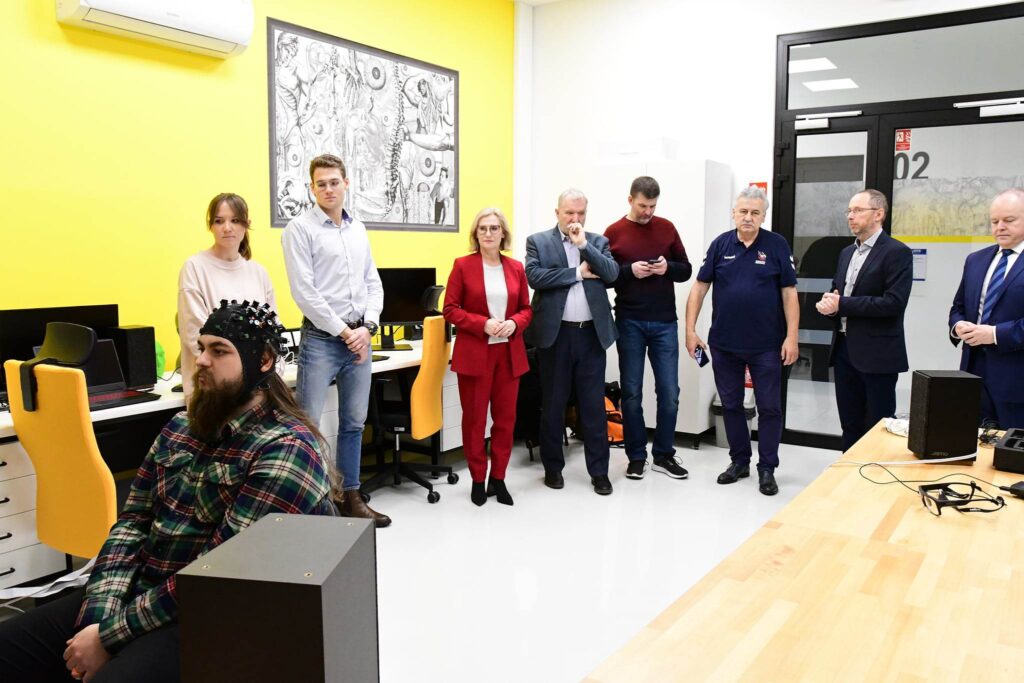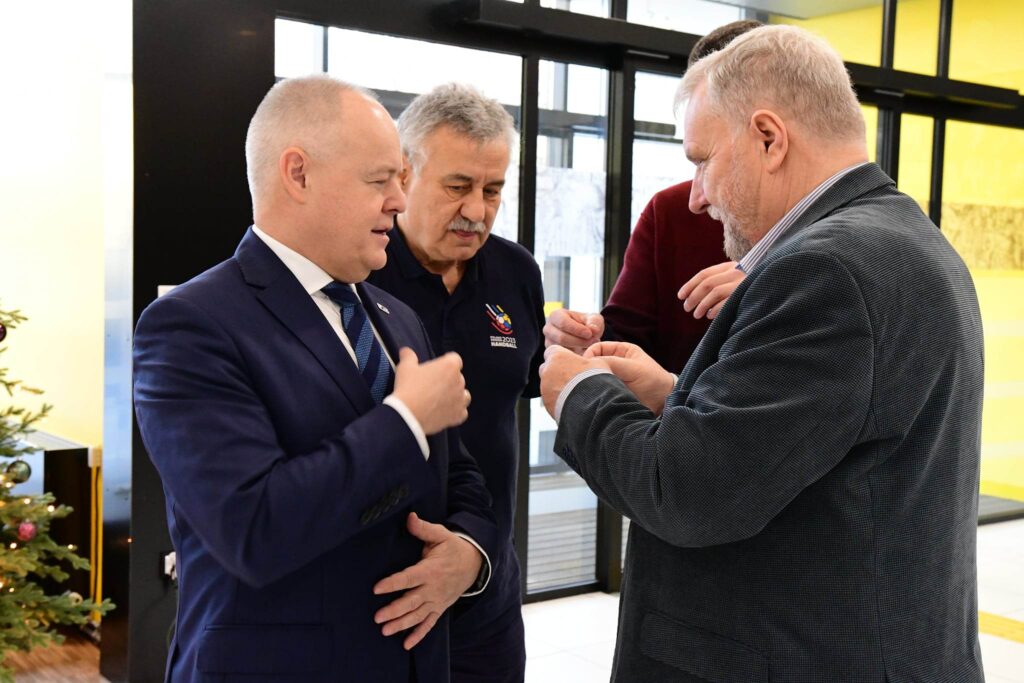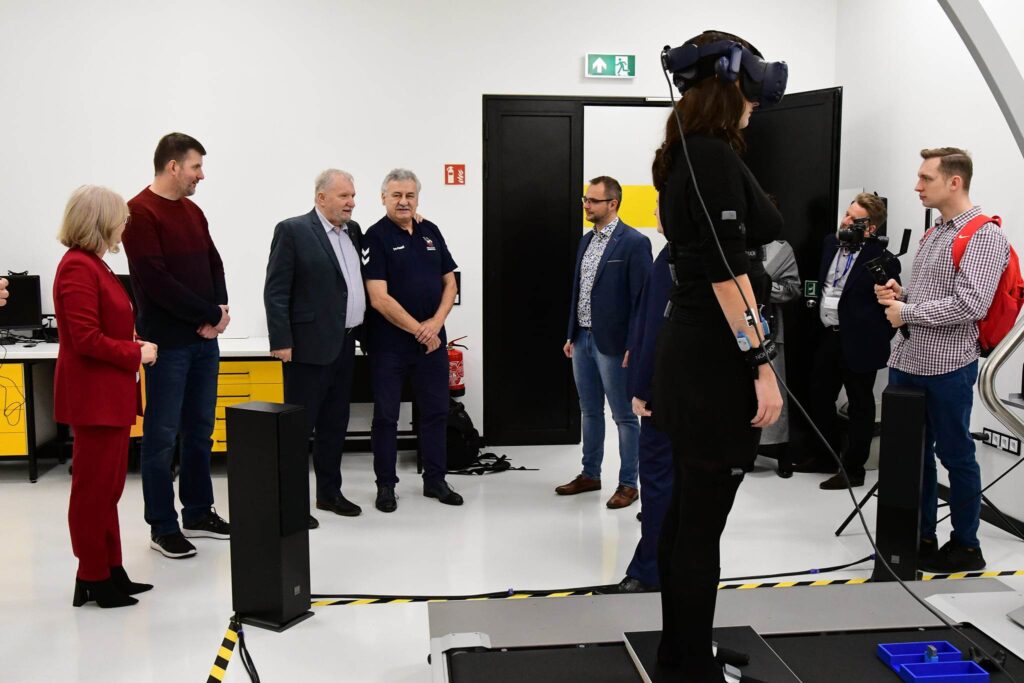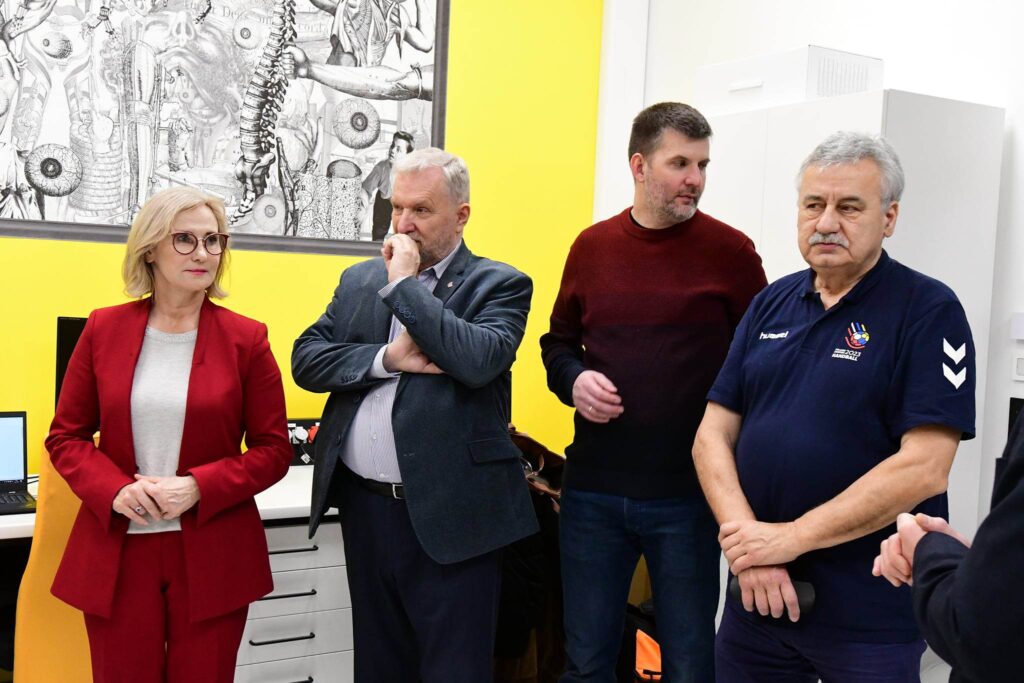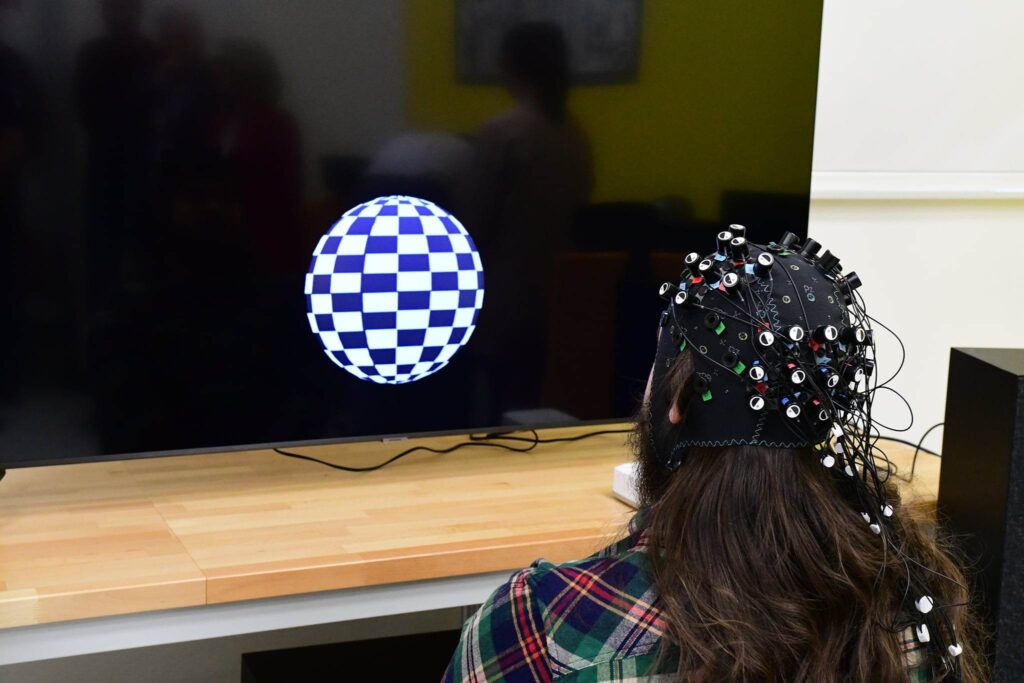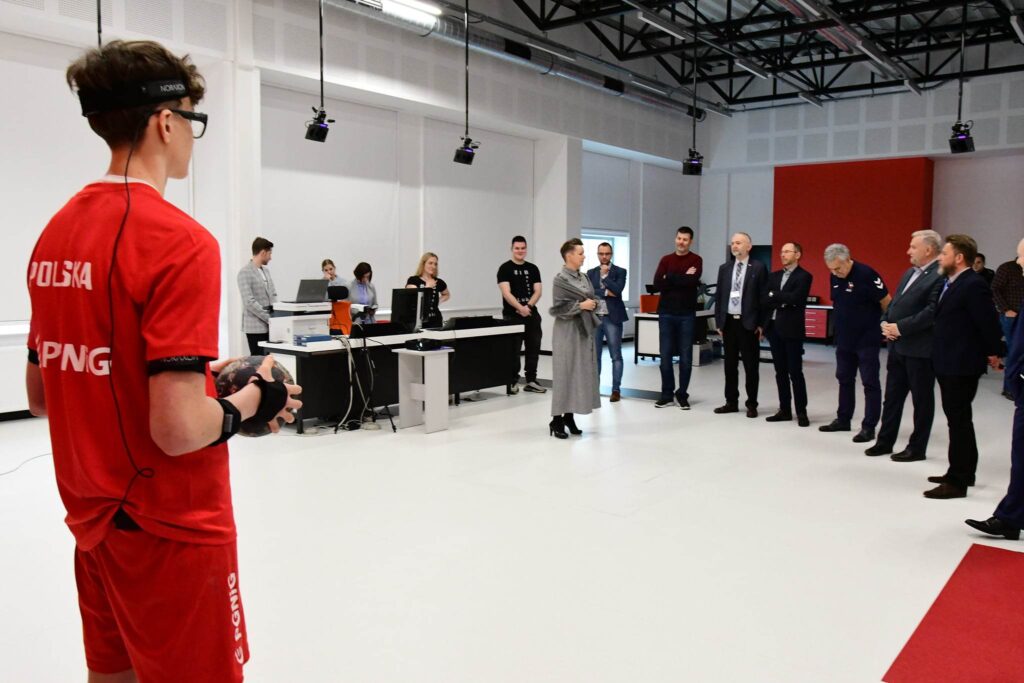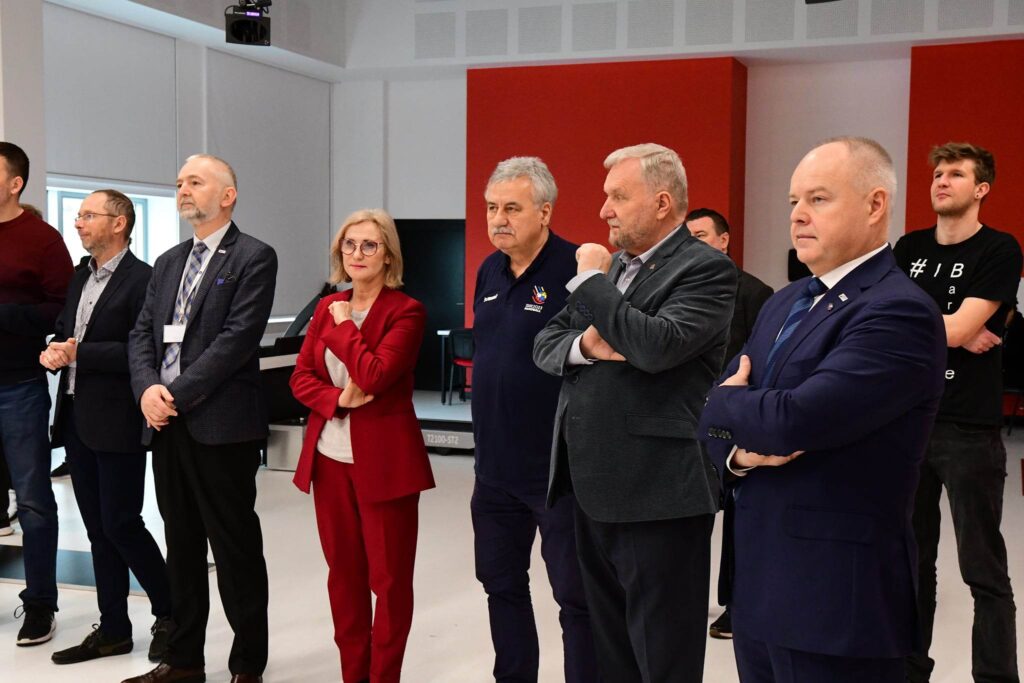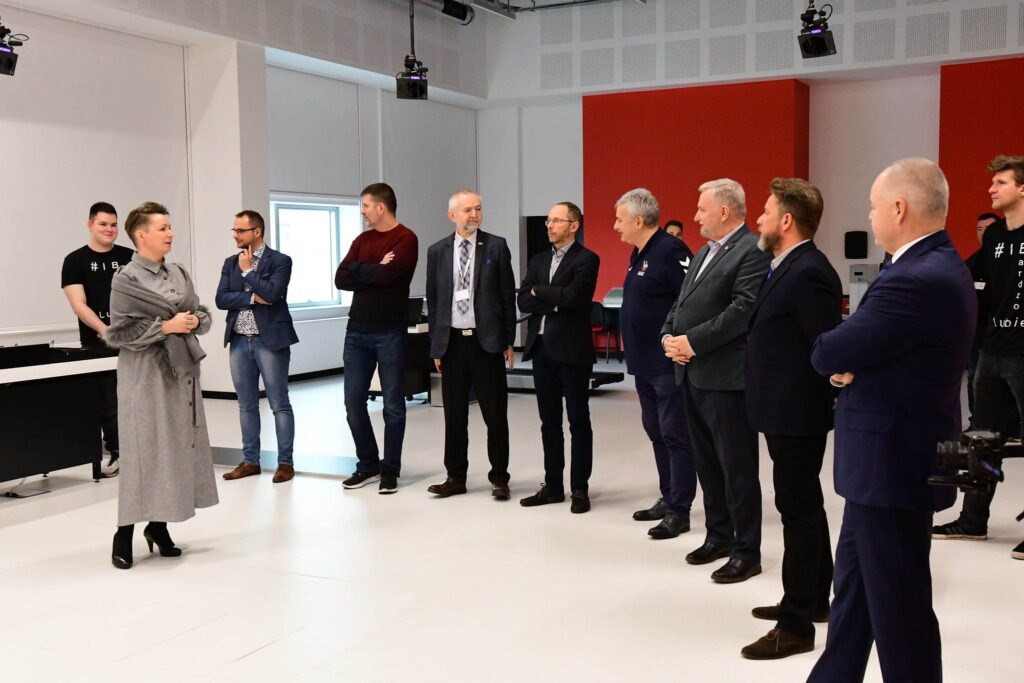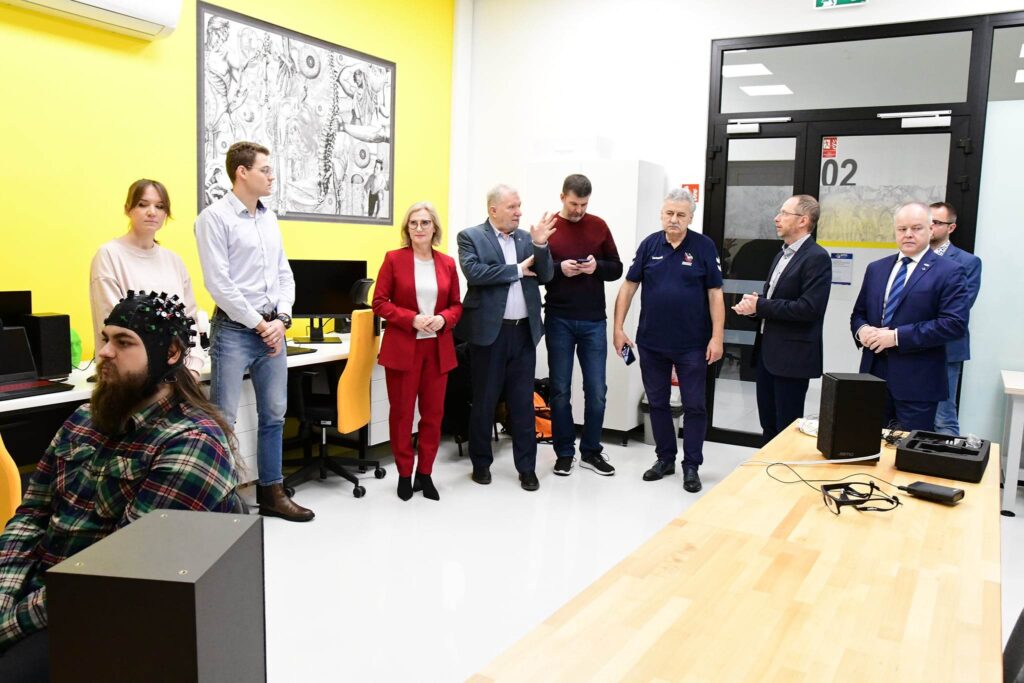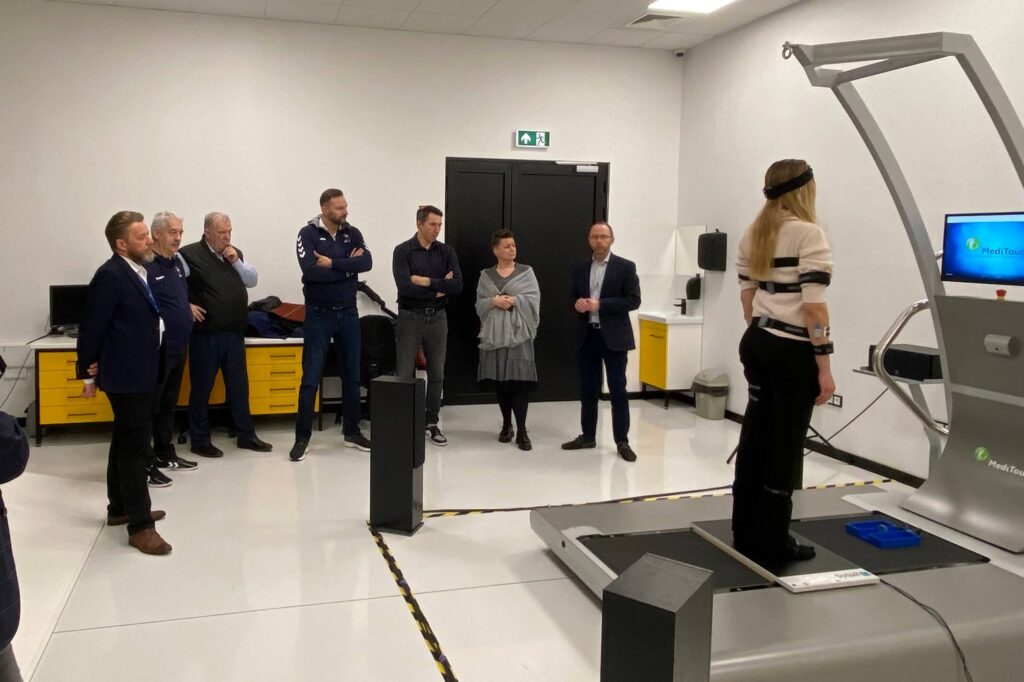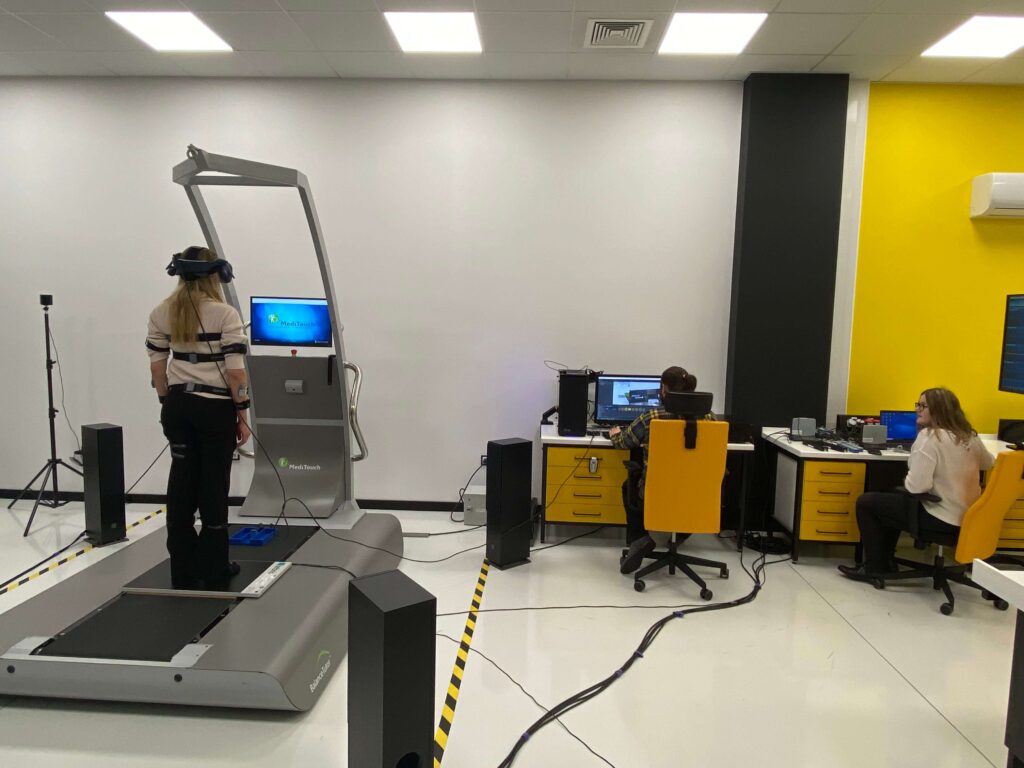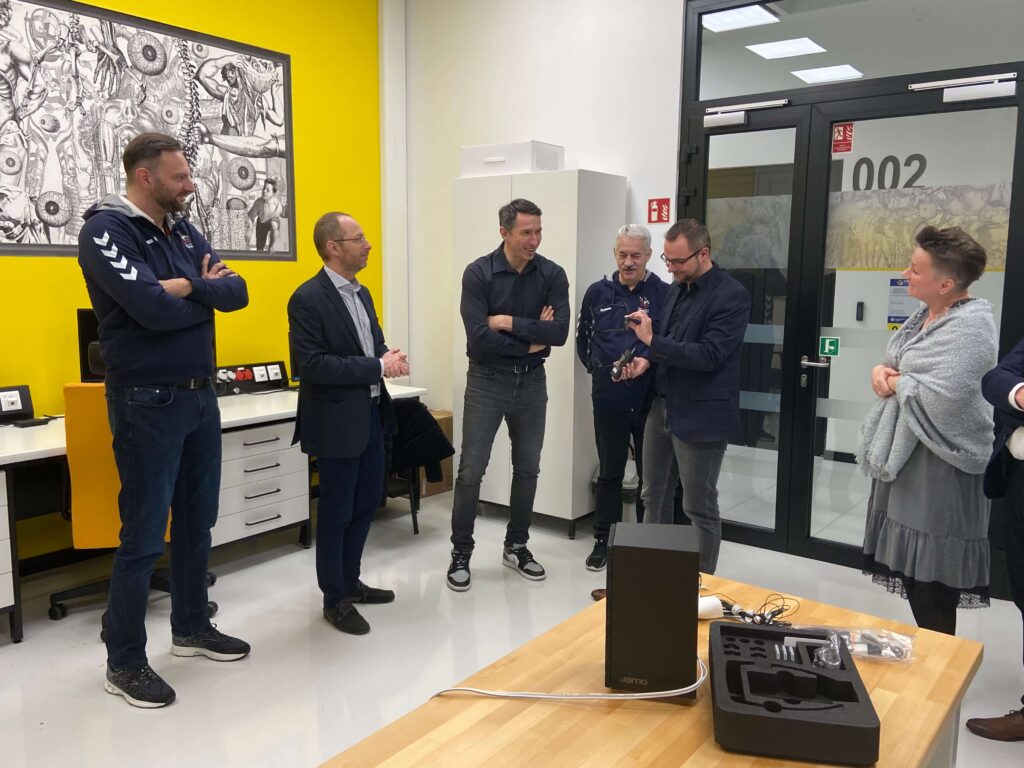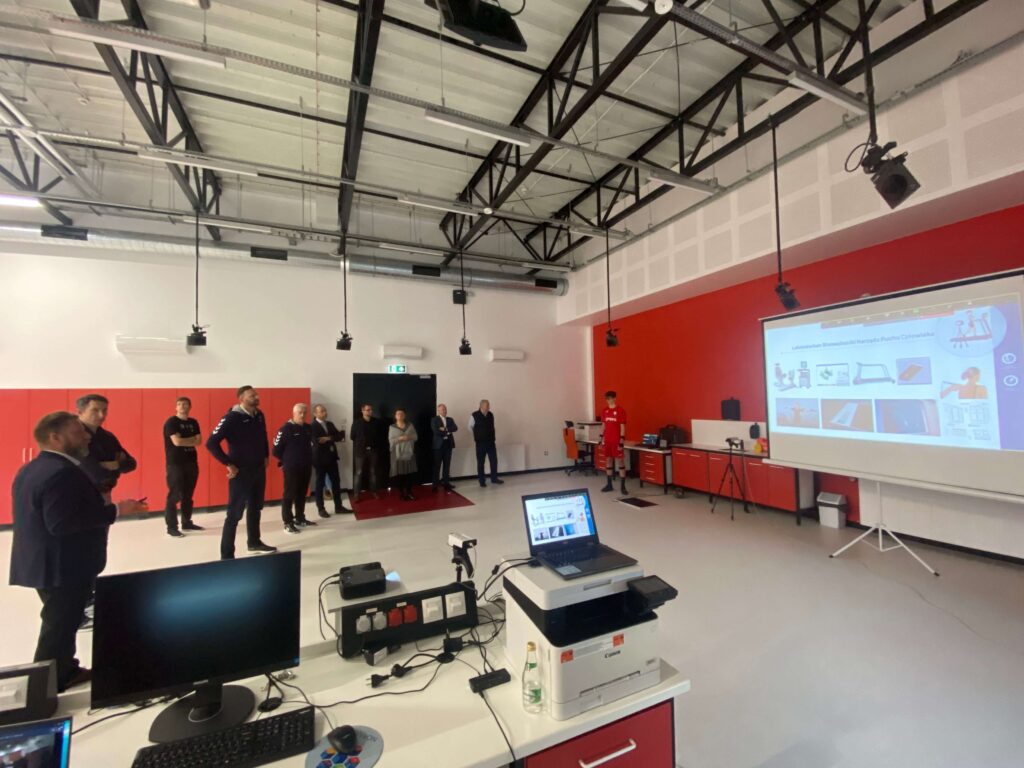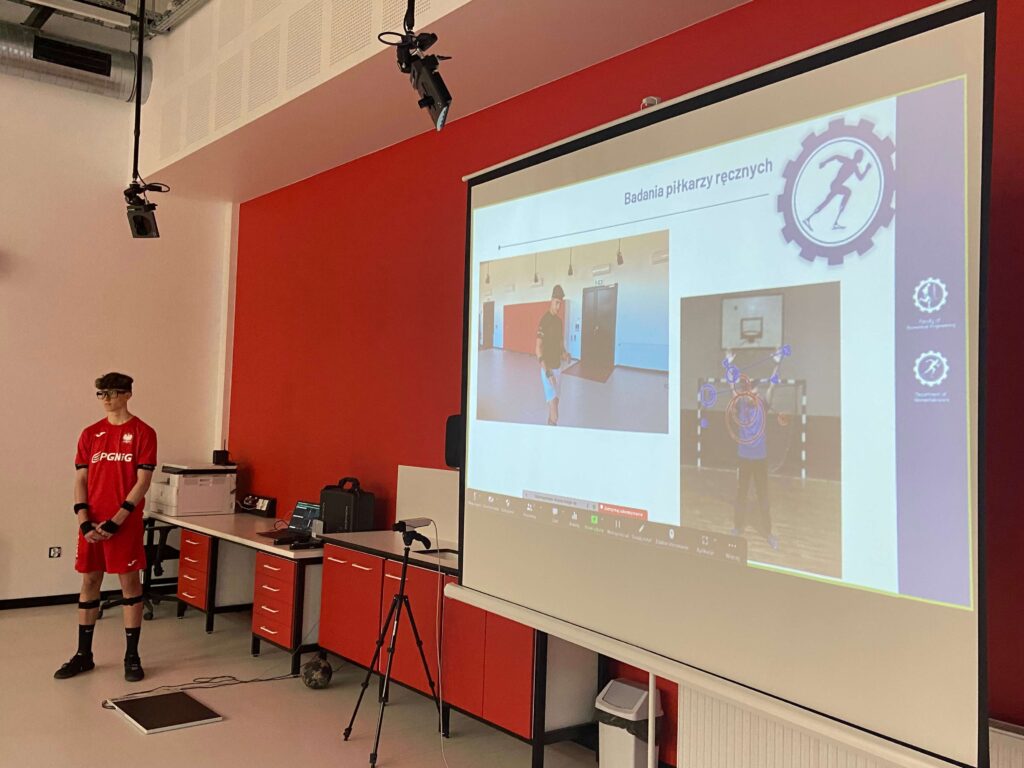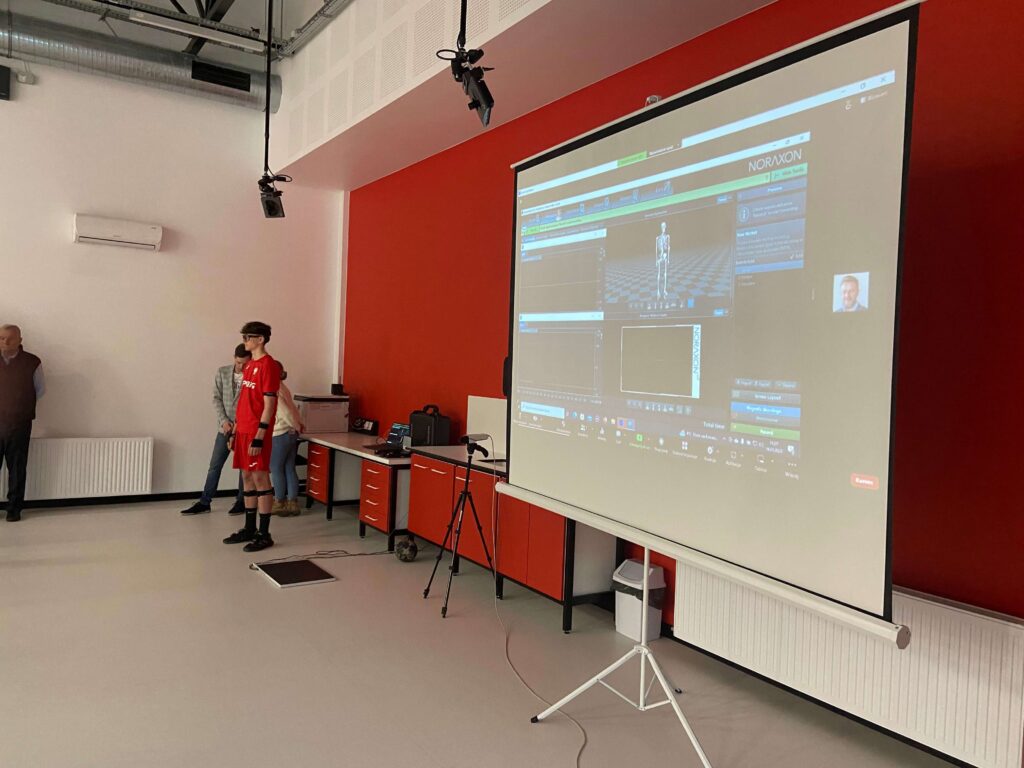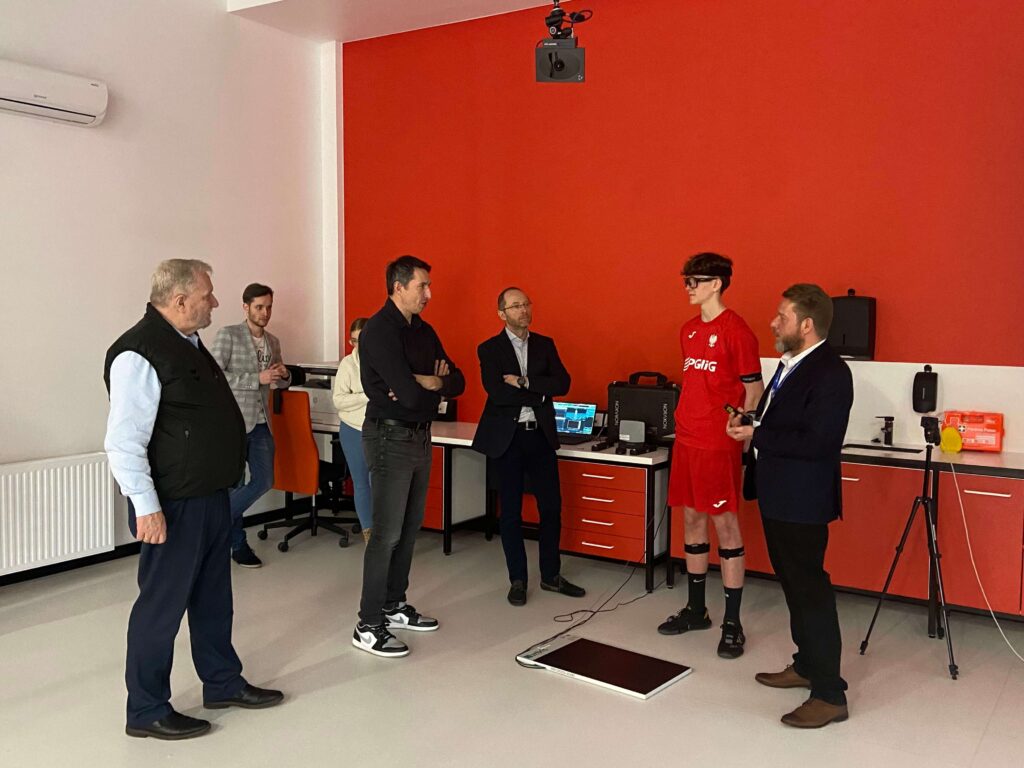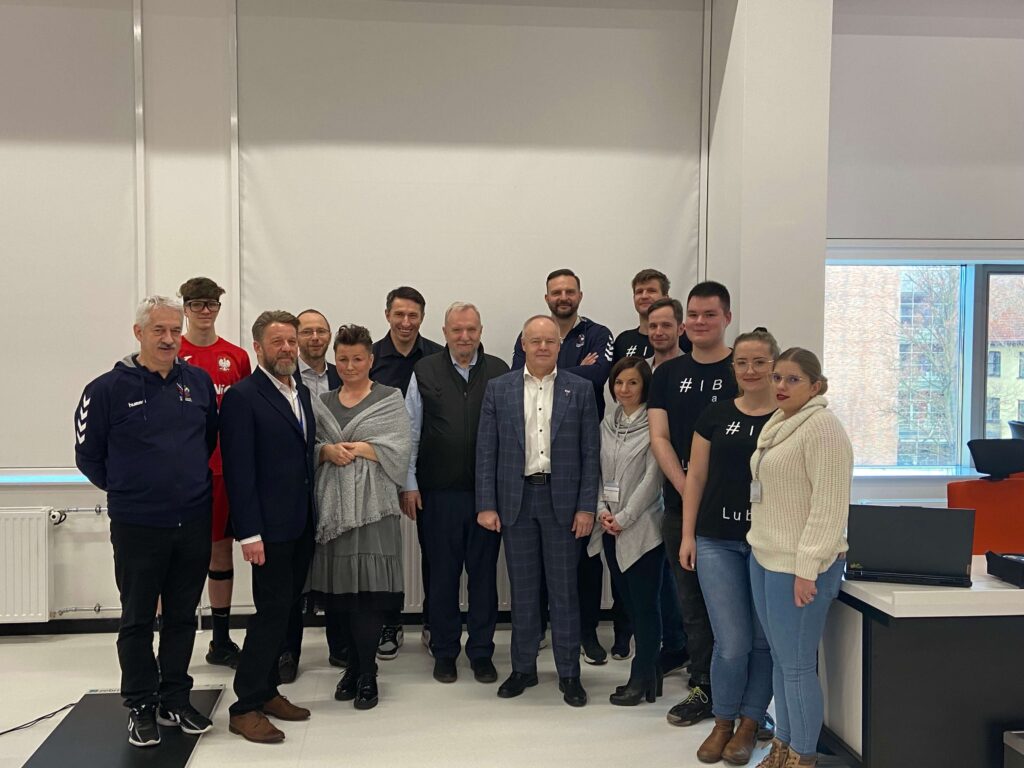Handball Association in Poland interested in opportunities offered by cutting-edge technologies
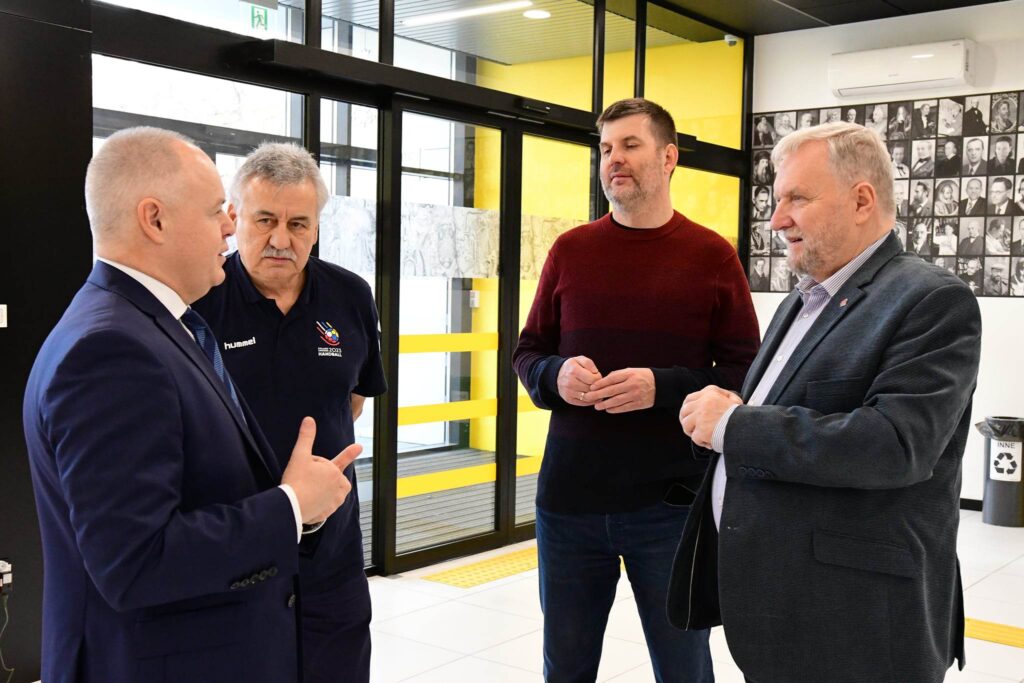
28th IHF Men’s Handball World Championship 2023, which this year took place in Sweden and, for the first time in the history of the sport, in Poland, also Silesia, provided an excellent opportunity to present the research potential of the Faculty of Biomedical Engineering, in particular the programme dedicated to sportspeople, partly based on advanced motion analysis.
On 13 January 2023, the EHTIC hosted a representation of the management team of the Handball Association in Poland: Henryk Szczepański, President of the Association, Bogdan Sojkin, 1st Vice President for Finance, and Grzegorz Gutkowski, Tournament Director, responsible for handball development matters at the Association.
The meeting was not lacking in representatives of the voivodeship, represented by Ms Urszula Koszutska, Vice Chairman of the Silesian Voivodship, the Faculty of Biomedical Engineering in the persons of prof. Zbigniew Paszenda, Dean of the Faculty, prof. Robert Michnik, Vice-Dean for Cooperation and Development, and prof. Marek Gzik, Director of the EHTIC, and at the same time Head of the Department of Biomechatronics and Chairman of the Silesian Voivodeship Assembly.
A few days later, on 15 January, we were re-visited by another group from the Association interested in creating a research programme dedicated to handball: Sławomir Szmal – goalkeeper with 20 years of experience with the national team, multiple medallist at the World Championships, and the Polish Championships, Vice President of the ZPRP responsible for sports training matters, Damian Drobik – Sports Director of the ZPRP, and dr Mirosław Baum, President of the Referees’ College of the Handball Association in Poland.
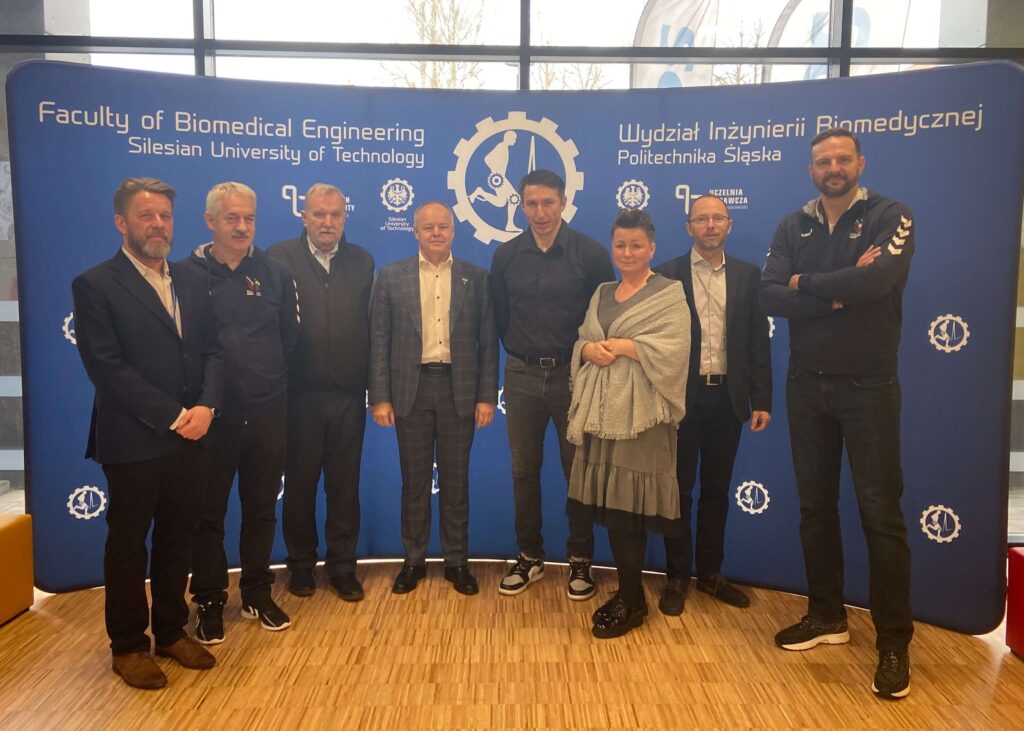
Handball is one of the more dynamic, contact and, at the same time, injury-prone sports. Injuries to players are most often resulting from overloading, repeated micro-injuries or as aggressive sporting combat.
The research programme presented at the EHTIC and developed by a team of researchers from the Faculty of Biomedical Engineering, provides new opportunities to both assess players’ movement performance and potential, and to improve player technique or prevent injuries that are so common in this sport. Numerical measurements make it possible not only to assess the influence of the muscular system on the musculoskeletal system or to estimate the risk of injury, but is also able to determine the influence of acoustic stimuli on a player’s behaviour on the court.
Representatives of the Handball Association were very much impressed with the presentation of the research capabilities, and acknowledged huge benefits that this type of research can bring at many levels not only to sports associations of various disciplines, but also to schools and universities – at every stage of education and training.
Motion analysis offers new insights and alters the approach to sports training for players
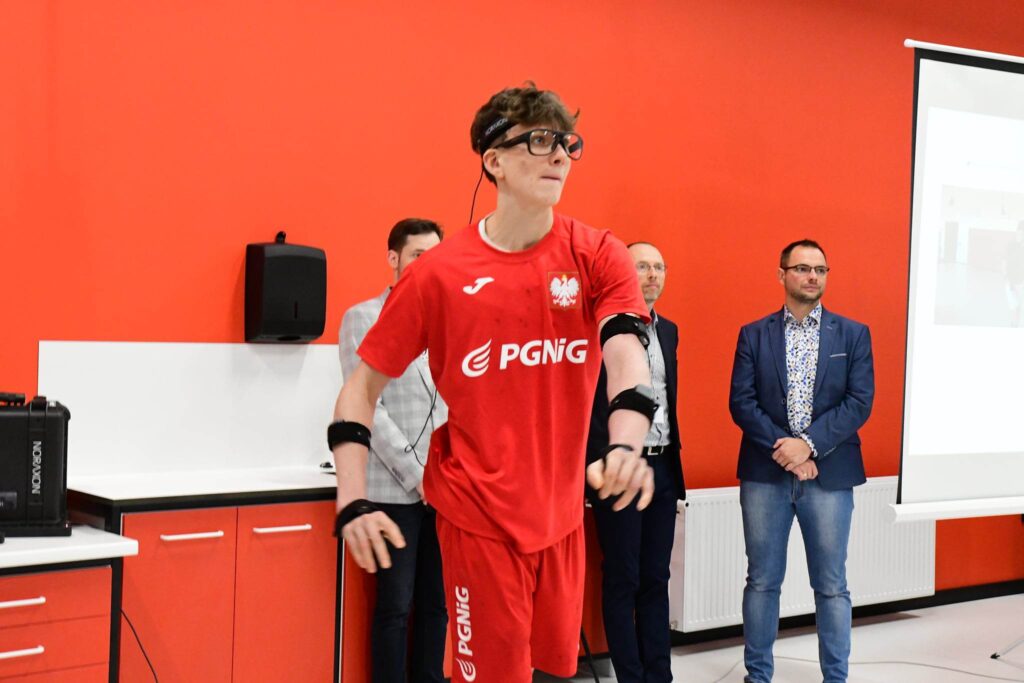
The technology located at the EHTIC, combined with the expertise and experience of the BE Faculty’s research staff, is an excellent solution that can benefit sportspeople from a variety of sport disciplines.
Looking at the range of research, the possibilities that the EHTIC laboratories offer, I am very impressed. I think that in the case of handball, the scope of the research conducted here can already be used at the selection stage of young players. (…) The area of work is really very broad. I am glad that I was able to see all this and convince myself of the methodology and practical application of this type of laboratories – emphasised ZPRP President Henryk Szczepański.
Talent and natural predispositions are certainly the basis for sport. But using science, assessing one’s abilities through its application, is a guarantee of success. Our centre can strongly help in this, and in every sport discipline – concluded Professor Marek Gzik, EHTIC director.
We would also like to thank the team for their excellent presentations: Prof. Robert Michnik, Prof. Jacek Jurkojć, Dr. Piotr Wodarski, Dr. Agata Guzik-Kopyto, Dr. Katarzyna Jochymczyk-Woźniak.
Gallery
